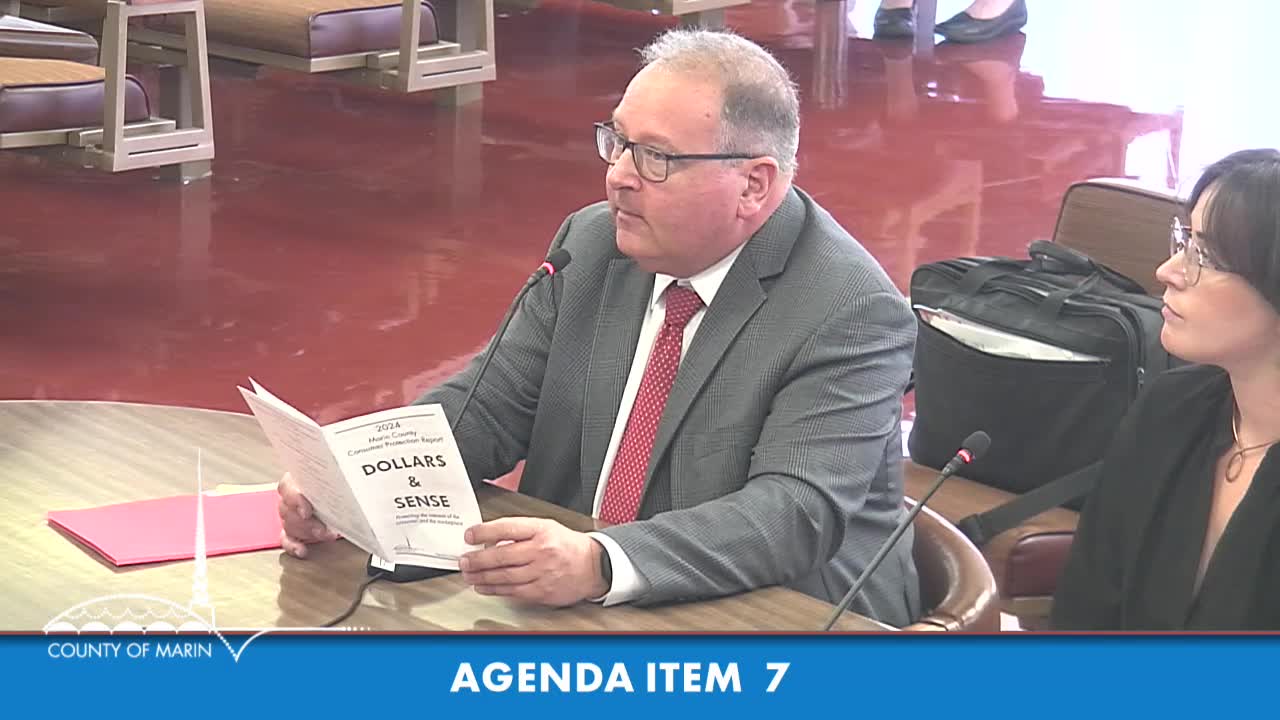Article not found
This article is no longer available. But don't worry—we've gathered other articles that discuss the same topic.
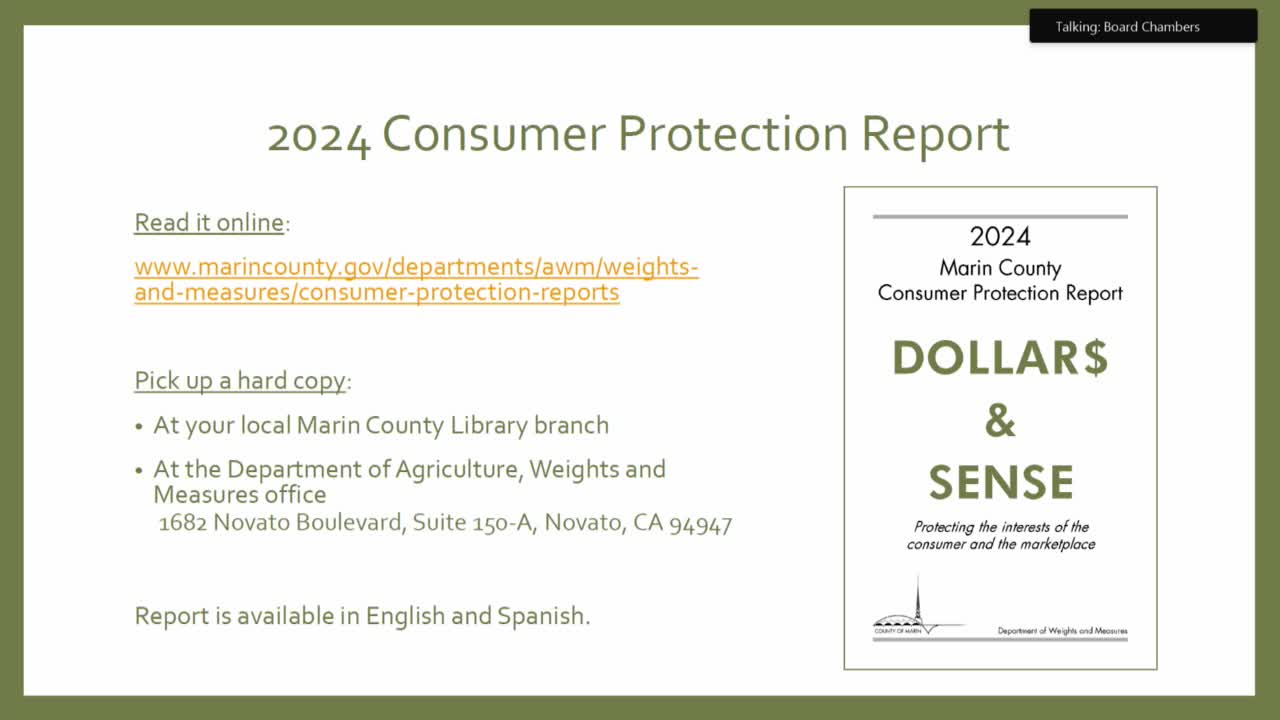
Supervisors hear ordinance to authorize home‑cooked meal permits; board asks staff for more city coordination and tables first reading
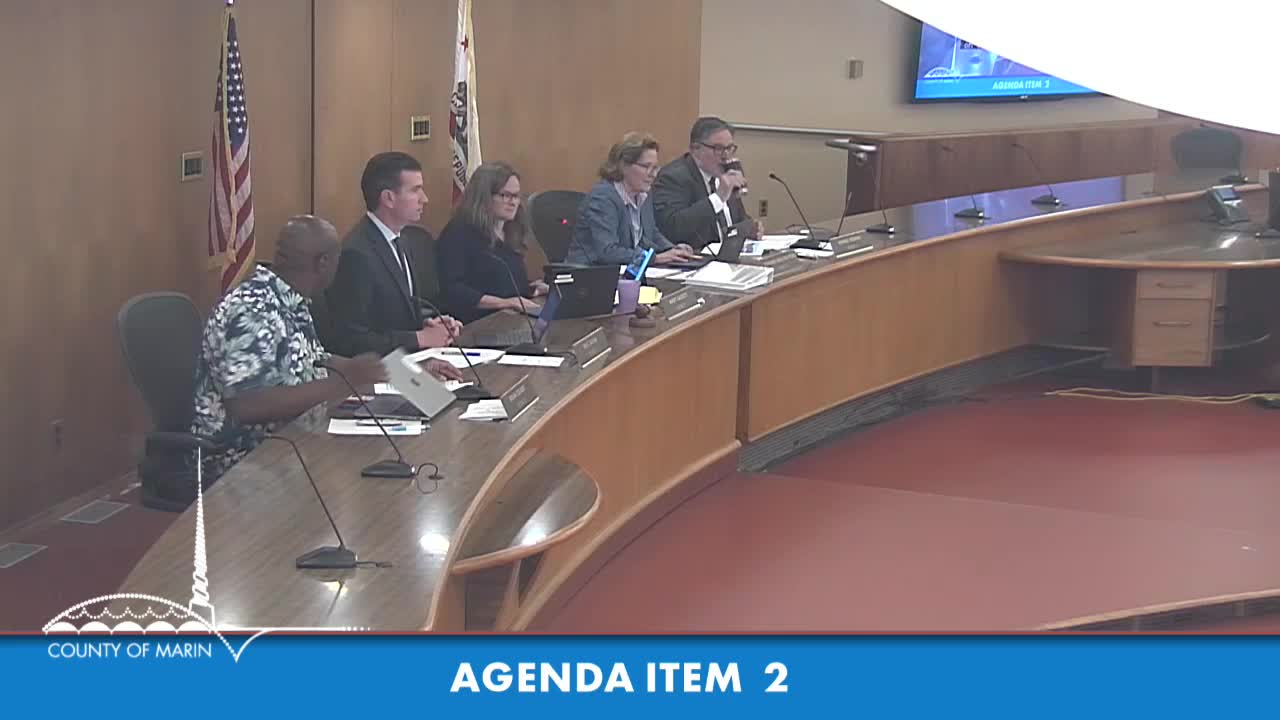
County executive releases FY 2025‑26 proposed budget: balanced, cautious about state/federal risks
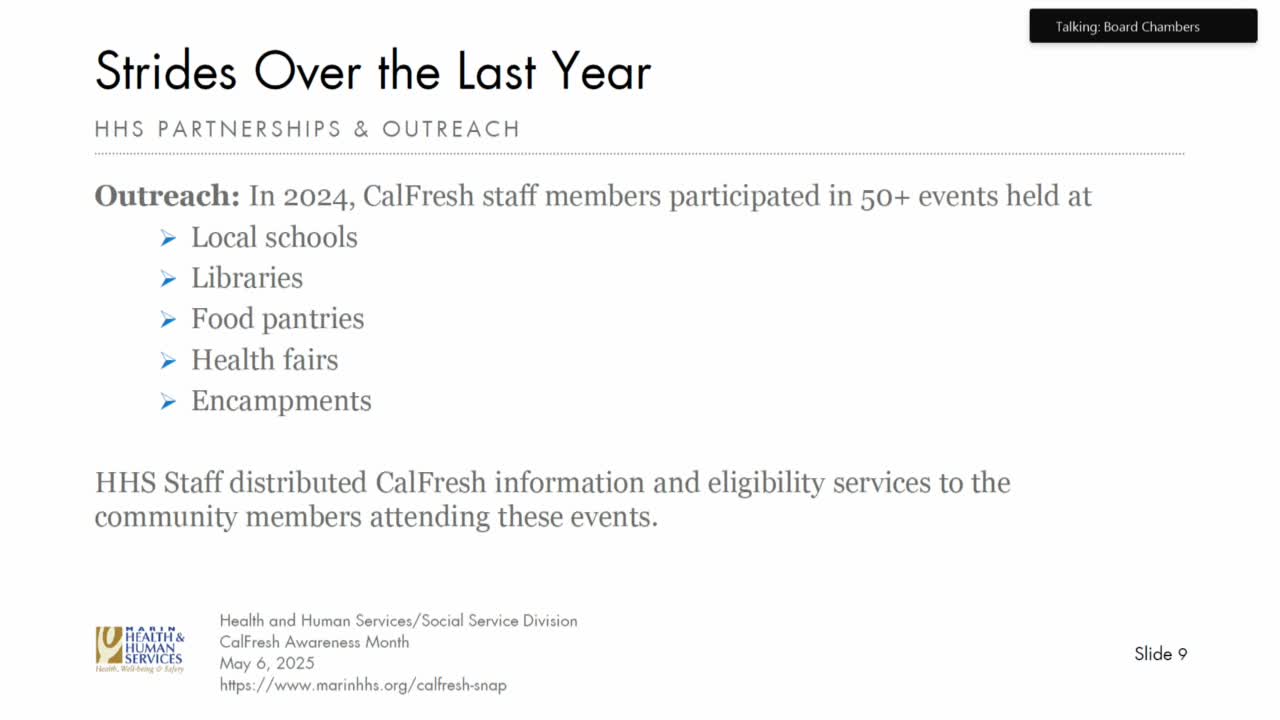
Library upgrades planned across Marin after voter‑approved Measure B; phased work will refresh all 10 branches
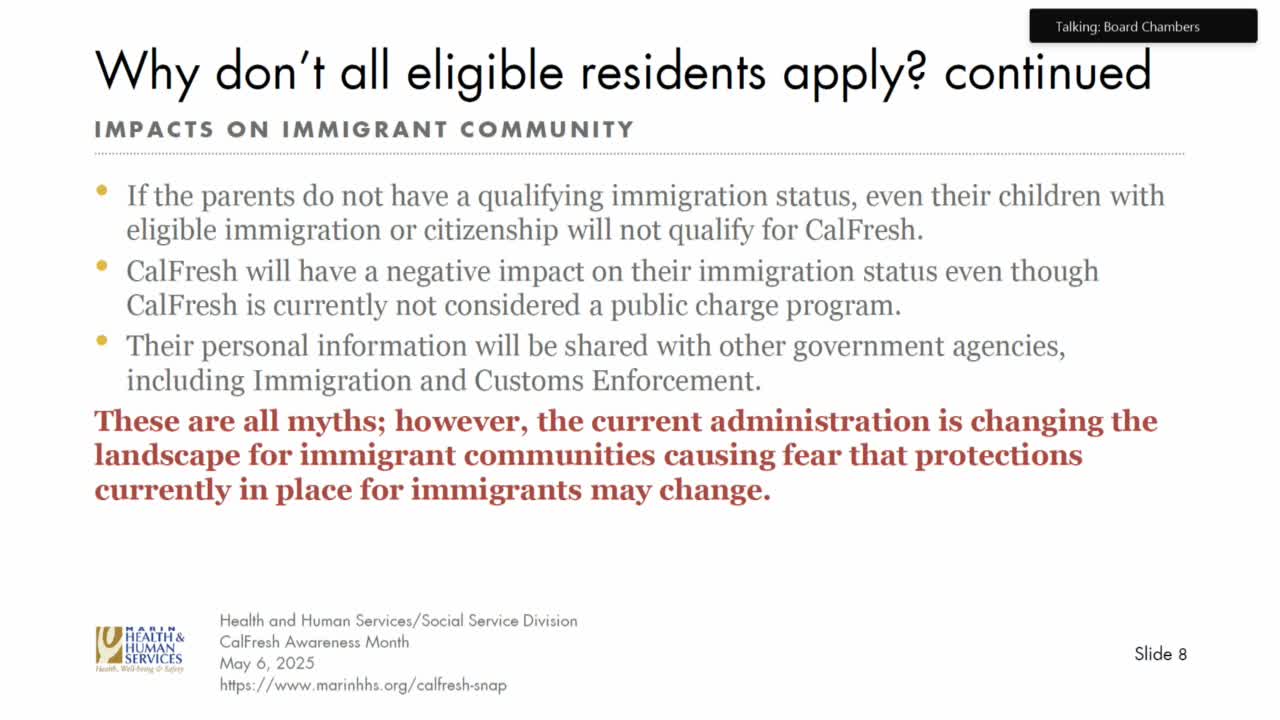
County accepts 2024 consumer‑protection report; DA‑led Safeway settlement highlighted
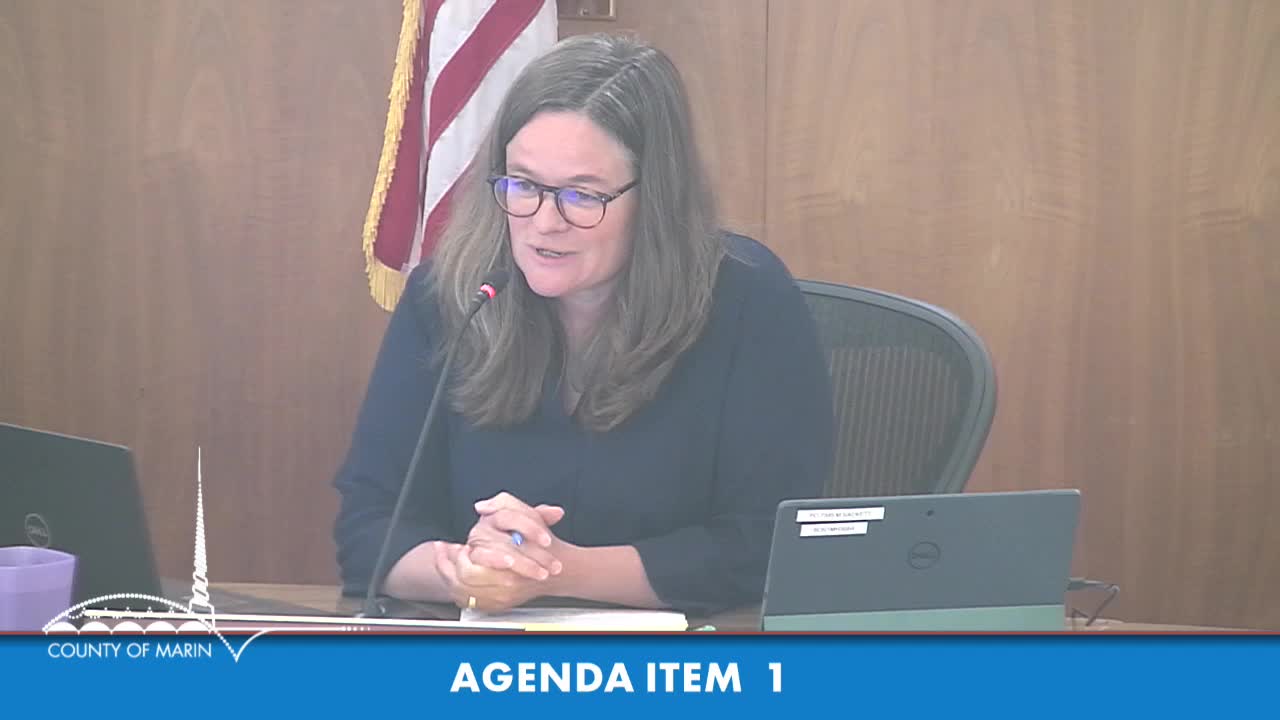
Board proclaims May Asian American, Native Hawaiian and Pacific Islander Heritage Month after employees’ presentation
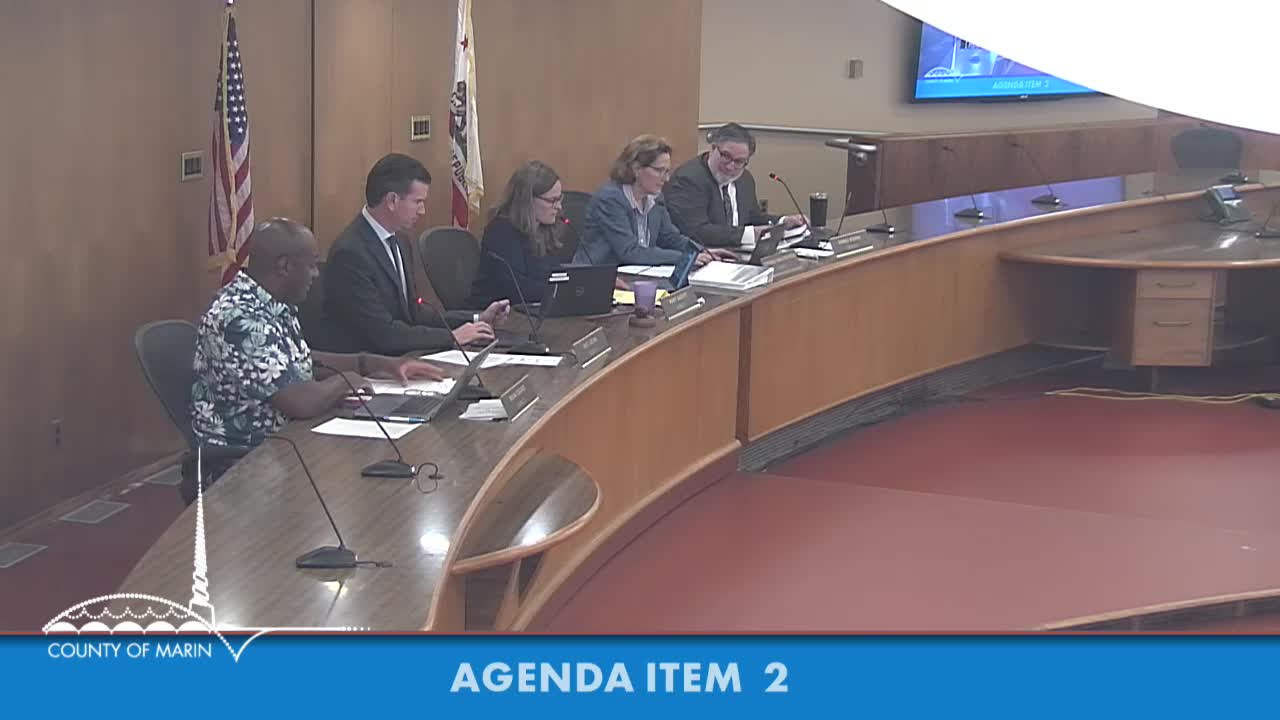
Marin supervisors proclaim May CalFresh Awareness Month as county outlines outreach and warns of federal threats
